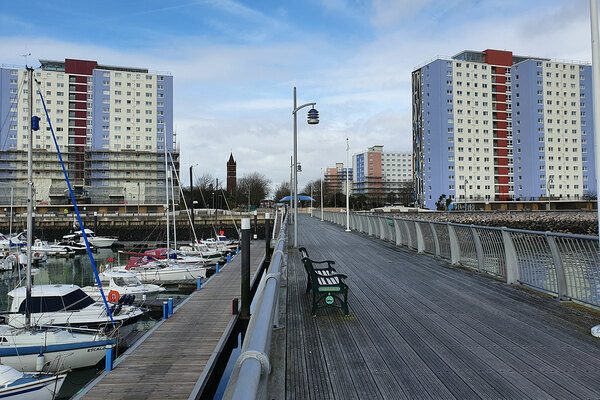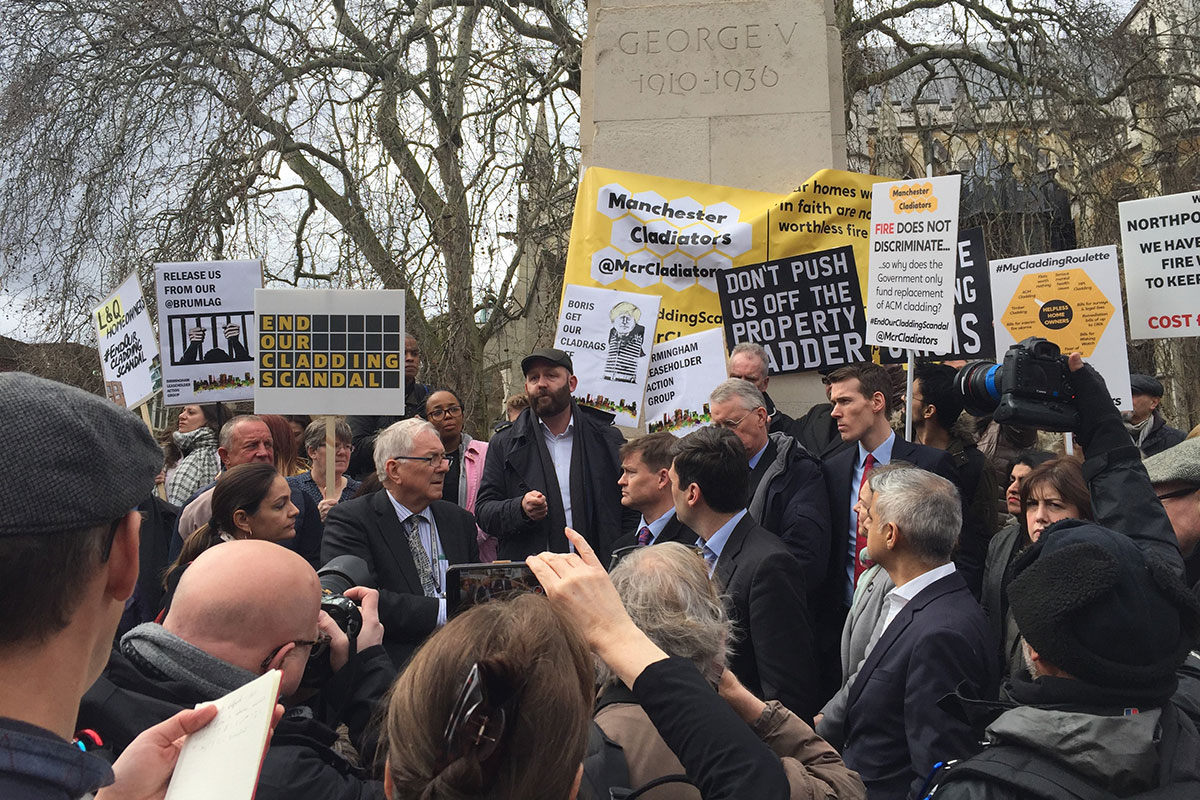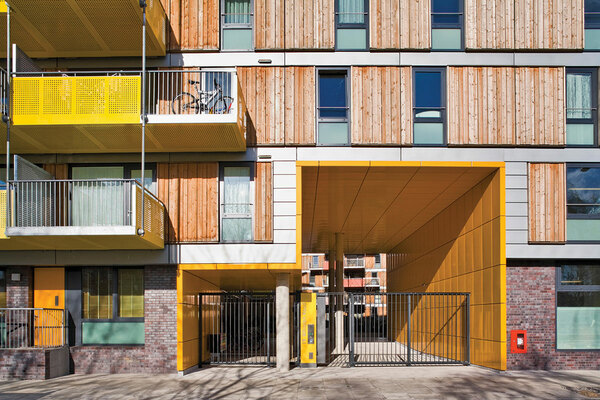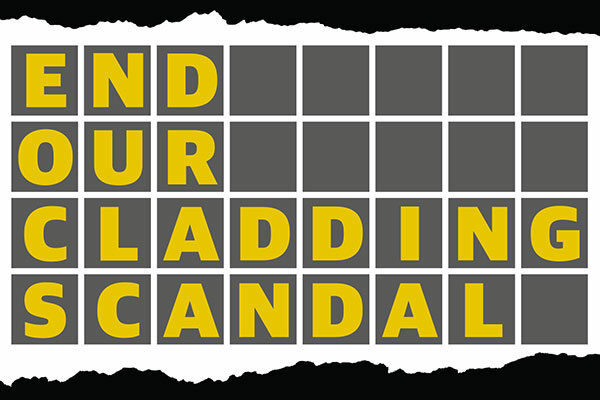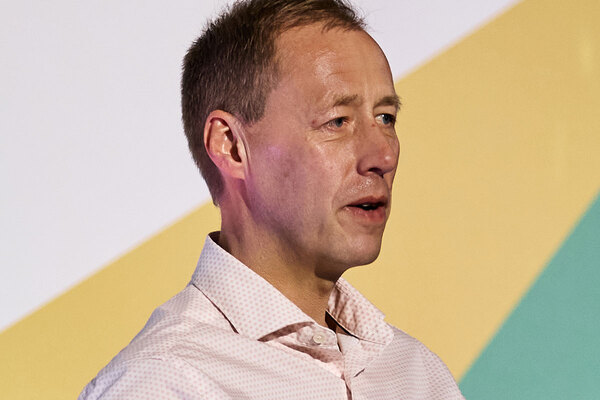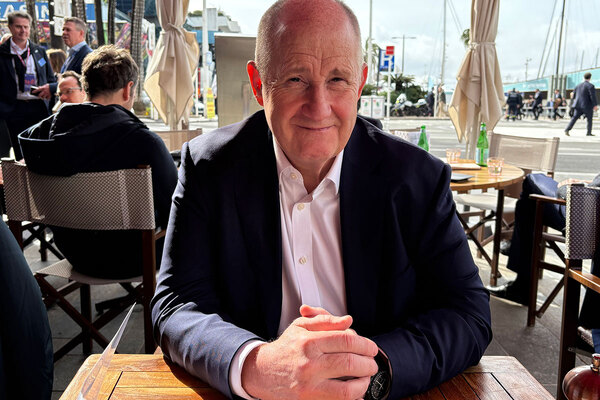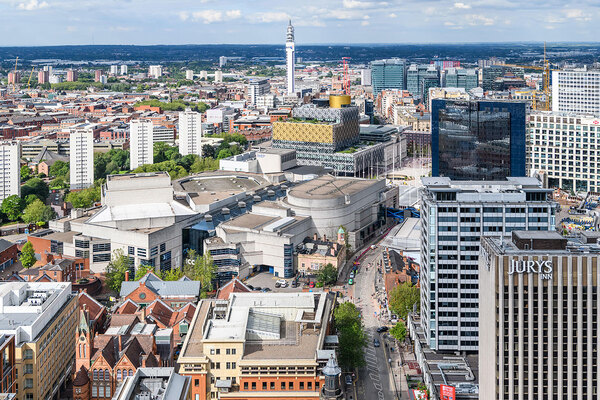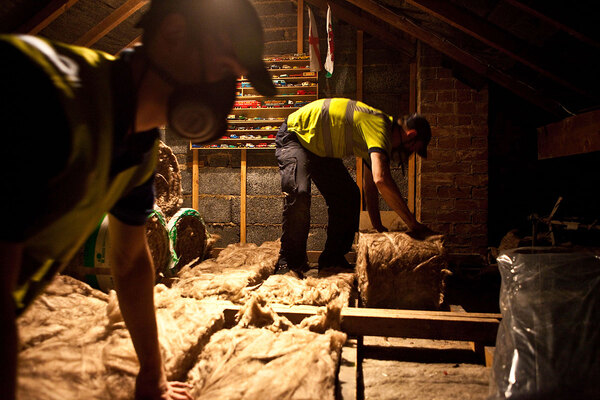Leaseholders impacted by cladding crisis write to chancellor calling for building safety fund
Resident groups from buildings with dangerous cladding have joined forces to call on the chancellor to create a ‘building safety fund’ at next week’s Budget.
A letter signed jointly by campaigners from Manchester, Birmingham, Leeds and a national group told Rishi Sunak they were “tired of waiting, tired of warm words and false promises of action”.
As part of the End Our Cladding Scandal campaign, which is being run in collaboration with Inside Housing, they said a fund must be established to cover the cost of safety work, as well as a taskforce to take control of the mounting crisis at a national level.
It came after the groups met with housing secretary Robert Jenrick to discuss the crisis, after he had avoided engaging with them for months.
Around the country it is estimated that more than 500,000 leaseholders in blocks of flats are currently affected by the building safety crisis.
Some are facing enormous bills for remediation work to their blocks on top of escalating costs for insurance and interim safety measures, such as waking watches.
Many more are unable to sell their homes unless they can assure mortgage lenders that there are no combustible materials on their walls – a process that requires intrusive surveys and testing, which could take years. As a result, their properties are valued at £0.
“Most of us are not wealthy, we have poured our life savings into a flat which was supposed to provide a home and security. That has been taken away,” the letter, below, said.
“Young people are having their futures ruined, older people are losing the peaceful retirement they have worked for and families are putting lives on hold. The human cost of what is happening is devastating and will only get worse. Continued inaction also increases the very real risk of another Grenfell-style disaster.”
At a meeting yesterday, leaseholders involved in the various groups met with Mr Jenrick for a round-table meeting in London to discuss the crisis.
They discussed the impact the issues are having on the mental health of residents, the soaring cost of interim measures and insurance and the need for government funding to extend beyond aluminium composite material (ACM) cladding.
In a joint statement following the meeting, they said: "We made it clear that this problem is not going to go away without government action. Together we are stronger. We will not be silenced."
📣 Please see our joint statement of response to the @RobertJenrick @mhclg meeting we all attended this afternoon @LeedsCladding @ukcag #EndOurCladdingScandal 👇 pic.twitter.com/kWnMD5ho7z
— Manchester Cladiators (@McrCladiatorsa>\uD83D\uDCE3 Please see our joint statement of response to the @RobertJenrick @mhclg meeting we all attended this afternoon @LeedsCladding @ukcag #EndOurCladdingScandal \uD83D\uDC47 pic.twitter.com/kWnMD5ho7z
— Manchester Cladiators (@McrCladiators) March 4, 2020
The government has put £600m into removing dangerous cladding: £400m for the social housing sector and £200m for private buildings.
But it has strictly limited this funding to properties with aluminium composite material cladding in buildings above 18m – leaving thousands of blocks without support.
“A building safety fund must be established – open to all buildings and not just limited to the very specific materials used on Grenfell. The government can give itself the power to recoup this money by pursuing developers, insurers or others who are liable through the courts,” the letter to the chancellor said.
The letter was signed by the Manchester Cladiators group, the Leeds Cladding Scandal group, Birmingham Leaseholder Action Group and the UK Cladding Action Group.
Collectively these organisations represent hundreds of buildings and tens of thousands of affected leaseholders.
The End Our Cladding Scandal campaign, which launched in April last year, calls on the government to fund the removal of dangerous cladding and to create a national taskforce to oversee the remediation work.
The Treasury said the Ministry of Housing, Communities and Local Government should respond to the letter.
Letter to Rishi Sunak from cladding groups
Dear Rishi,
We write to make you aware of a crisis which is gripping this country, a crisis which is ruining our lives, the lives of our neighbours and the lives of thousands of other residents of blocks of flats.
We are talking about the crisis of buildings which are not fire safe. The best-known issues are with combustible cladding, but the crisis extends far beyond this, to insulation, missing fire breaks and serious internal defects. It is a scandal which is having multiple serious impacts on human lives and the economy.
First, thousands of leaseholders are being asked to pay for the work to make their buildings safe. These bills can exceed £80,000. Residents are facing the dual threat of financial ruin and fear over the safety of their homes.
Second tens of thousands – perhaps hundreds of thousands – of flats are currently unsellable and valued at £0 while work is carried out to identify the cladding on their walls. This is placing lives on hold and is a major problem for the mortgage sector as well as damaging the economy by holding back property sales.
Interim measures, in the form of waking watches, are ruinously expensive for leaseholders to fund. Individuals are billed hundreds of pounds a week to keep these measures in place: forcing people to take loans and retirees back into the workplace. These were supposed to be short term fixes but in some cases have now been in place for almost three years.
Finally, in the social housing sector, housing providers are being forced to scale back ambitious house building plans to fund the remediation work to their stock. This has major implications for the government’s affordable housing agenda.
As yet, all government efforts to solve this crisis have failed.
The £600m of funding is strictly limited to buildings clad with aluminium composite material cladding above 18m. This has created a lottery where those who live in buildings not covered by the fund are totally abandoned. The £200m fund of this funding made available for the private sector has also proved woefully difficult to access – with only one building so far approved.
The efforts to cajole or persuade private sector organisations to act by appealing to their moral duty has also largely failed. We need tough action not tough talk. Tinkering with official government advice notes has also only served to widen the crisis. There appears to have been no strategy, no plan. That’s why we’re asking you to finally provide the leadership needed.
First, a building safety fund must be established – open to all buildings and not just limited to the very specific materials used on Grenfell. The government can give itself the power to recoup this money by pursuing developers, insurers or others who are liable through the courts. Similar measures, backed by legislation, have been implemented in Australian states. Providing the money up front allows this vital work to go ahead without delay and without burdening homeowners with the cost.
Second, a taskforce must established which has the power to oversee this work. In particular, it is necessary for central government to take the lead in prioritizing the work so that funding and industry efforts can be directed to the buildings most in need of remediation.
We also firmly believe residents groups should be represented on this taskforce, and should be involved in decision making as a whole. After Grenfell, politicians promised to listen to the voice of residents on issues of safety. So far, it is failing to.
We are aware of reports that you are considering a loan scheme to address this crisis. We urge you not to proceed with these plans. Burdening stretched leaseholders with debt is unfair and would simply legitimise the transfer of costs to residents.
We remind you that these homes were bought in good faith – in many instances with direct government support. Most of us are not wealthy, we have poured our life savings into a flat which was supposed to provide a home and security. That has been taken away. Young people are having their futures ruined, older people are losing the peaceful retirement they have worked for and families are putting lives on hold. The human cost of what is happening is devastating and will only get worse. Continued inaction also increases the very real risk of another Grenfell-style disaster.
We are tired of waiting, tired of warm words and false promises of action. We are tired of hearing how difficult a problem this is to solve. The government has a duty to act and it is beyond time to start taking this crisis seriously. We hope your budget will finally start that process.
Yours sincerely,
Fran Reddington, Manchester Cladiators
Ritu Saha, UK Cladding Action Group
Abigail Tubis, Leeds Cladding Scandal
Jennifer Reid, Birmingham Leaseholder Action Group
Sign up for Inside Housing’s weekly Grenfell Inquiry newsletter
Each week our sister publication Inside Housing sends out a newsletter rounding up the key news from the Grenfell Inquiry, along with exclusive analysis of what it all means for the social housing sector.
Already have an account? Click here to manage your newsletters
End Our Cladding Scandal general election campaign: full coverage
The cladding scandal is far from over. Here’s why we need a fresh approach
Click here to read the full story
Ahead of the general election, Inside Housing revisits our national cladding scandal and sets out what needs to be done to prevent any further tragedies. Peter Apps reports.
The cladding crisis Down Under: what we can learn from the response to Grenfell in Australia
Click here to read the full story
Five years ago a fire spread up Grenfell-style ACM cladding on a high-rise in Melbourne. This prompted an overhaul of the Australian state of Victoria’s building safety regime. Peter Apps finds out what the UK could learn.
More than 100,000 buildings outside scope of fire safety measures, minutes reveal
Click here to read the full story
There are more than 100,000 medium-rise homes that fall outside new regulations aimed at making buildings safe in the aftermath of Grenfell, including the ban on combustible cladding, Inside Housing can reveal.
It’s only a matter of time until the next Bolton unless the parties step up to the plate on fire safety
Click here to read the full story
Inside Housing’s new election campaign calls on the main political parties to commit to taking action to prevent what currently seems like an inevitable further tragedy. It’s time for everyone to step up, writes Martin Hilditch.
Leaseholders fear missing out on £200m cladding fund as bidding deadline approaches
Click here to read the full story
Leaseholders living in blocks seeking government funding for the removal of Grenfell-style cladding have raised concerns over meeting the deadline for applications, while criticising the lengthy process being run by the government.
Government refusing to test polystyrene panels, despite request from London boroughs
Click here to read the full story
The government has no further plans to carry out testing of cladding products despite a specific request from London boroughs to test systems comprising polystyrene, a document obtained by Inside Housing has revealed.
